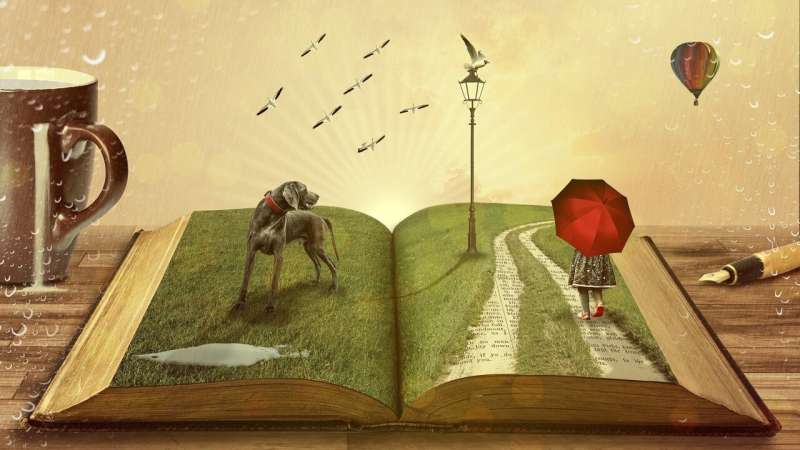This article has been reviewed according to Science X's editorial process and policies. Editors have highlighted the following attributes while ensuring the content's credibility:
fact-checked
trusted source
proofread
Lack of visual imagery does not lead to less pleasure in reading, finds study

When people read a book, they typically imagine the story in their heads. But how do people experience a story if they find it difficult or impossible to imagine what is being described? Cognitive scientist Laura Speed and her colleagues found in an initial study of reading in people with so-called aphantasia that they do not enjoy reading less, but they do become less engaged with a story.
Most people who read a book are absorbed in the world of the story. This is noticeable when they are disappointed when the characters in a film adaptation look different from what they imagined. People with aphantasia, a condition that was only "discovered" in 2015, have difficulty or are even unable to create visual images of concepts, objects or scenes, or recall memories in a visual way. An estimated 5% of the world's population has this condition.
Visual imagery is thought to be involved in various cognitive processes, including language processing. For instance, when we hear the word "red," we create an image of that color in our mind. Studies with brain imaging have shown that visual parts of the brain are activated during language comprehension.
"Interestingly, people with aphantasia do not report impairments in their language skills," says language scientist Laura Speed. "It is not the case that someone who can't visually imagine 'red' can't understand the word. But visual imagery is associated with how someone experiences a story."
Getting less absorbed
In their study, published in Consciousness and Cognition, Speed and her colleagues Lynn Eekhof and Marloes Mak asked 47 people with aphantasia and 51 people without aphantasia to read a short fiction story. An established visual imagery questionnaire was used to determine whether someone had aphantasia. Participants then had to answer questions about their experience of the story, as well as their general reading preferences and habits.
"It appears that people with aphantasia are less absorbed in the story world and feel less emotional involvement with characters," says Speed. In addition, descriptions of scenery and actions were less appreciated by people with aphantasia than by the control group. "But surprisingly, the groups did not differ in how much they enjoyed the story."
In addition, both groups reported the same number of books they read per year and they also appear to like similar genres of fiction. A number of aphantasics even reported writing fiction themselves.
Other routes
So visual imagery is important for getting absorbed in a story, but people with weak or no visual imagery still enjoy reading. "It seems that visual imagery is not the only way to enjoy a story. The plot or style of language, for example, unlike descriptions of scenery, doesn't require strong visual imagery," says Speed.
"Aphantasic participants in our study reported appreciating these aspects, but not descriptions of scenery. So there are—besides visual imagery—other routes to story enjoyment and language comprehension. What works for some does not necessarily work for others. It is important to explore and understand this diversity in reading approaches."
More information: Laura J. Speed et al, The role of visual imagery in story reading: Evidence from aphantasia, Consciousness and Cognition (2024). DOI: 10.1016/j.concog.2024.103645



















